Elliott Delaye
Bring Your Own Codegen to Deep Learning Compiler
May 03, 2021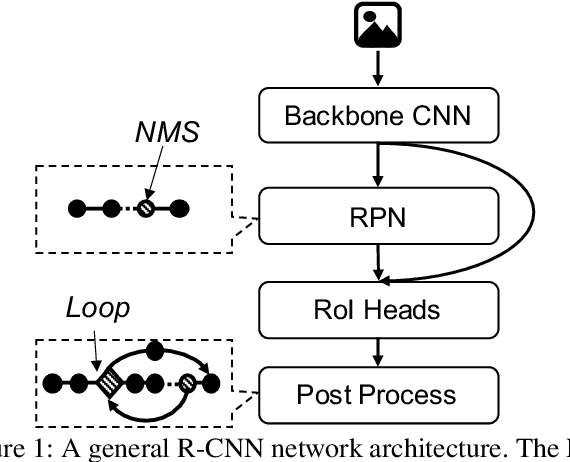


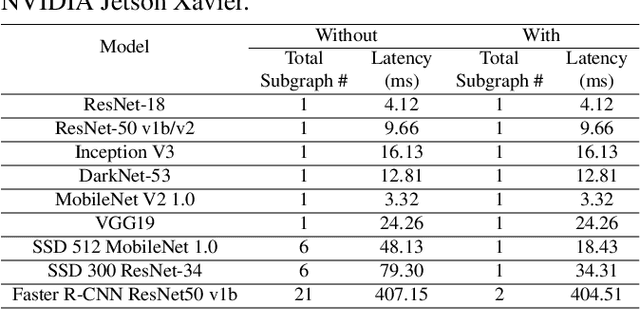
Abstract:Deep neural networks (DNNs) have been ubiquitously applied in many applications, and accelerators are emerged as an enabler to support the fast and efficient inference tasks of these applications. However, to achieve high model coverage with high performance, each accelerator vendor has to develop a full compiler stack to ingest, optimize, and execute the DNNs. This poses significant challenges in the development and maintenance of the software stack. In addition, the vendors have to contiguously update their hardware and/or software to cope with the rapid evolution of the DNN model architectures and operators. To address these issues, this paper proposes an open source framework that enables users to only concentrate on the development of their proprietary code generation tools by reusing as many as possible components in the existing deep learning compilers. Our framework provides users flexible and easy-to-use interfaces to partition their models into segments that can be executed on "the best" processors to take advantage of the powerful computation capability of accelerators. Our case study shows that our framework has been deployed in multiple commercial vendors' compiler stacks with only a few thousand lines of code.
Quantizing Convolutional Neural Networks for Low-Power High-Throughput Inference Engines
May 21, 2018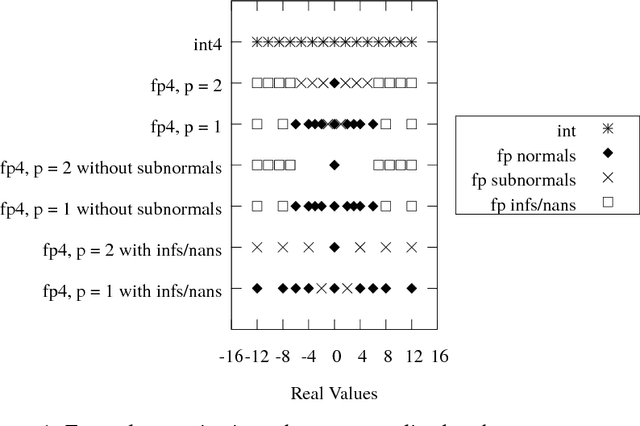
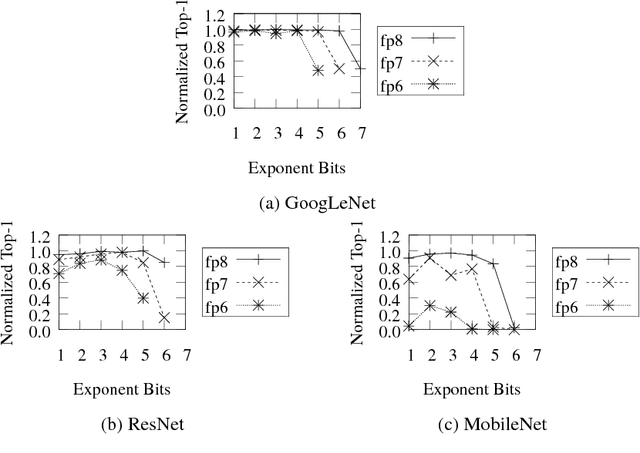
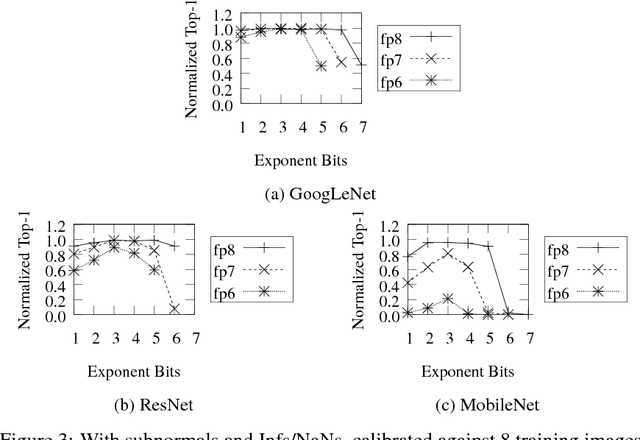
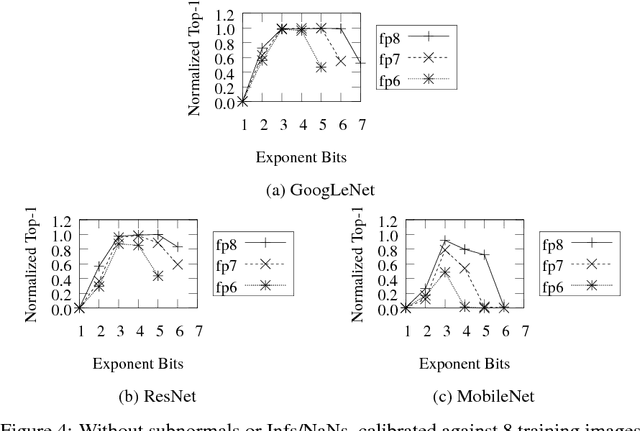
Abstract:Deep learning as a means to inferencing has proliferated thanks to its versatility and ability to approach or exceed human-level accuracy. These computational models have seemingly insatiable appetites for computational resources not only while training, but also when deployed at scales ranging from data centers all the way down to embedded devices. As such, increasing consideration is being made to maximize the computational efficiency given limited hardware and energy resources and, as a result, inferencing with reduced precision has emerged as a viable alternative to the IEEE 754 Standard for Floating-Point Arithmetic. We propose a quantization scheme that allows inferencing to be carried out using arithmetic that is fundamentally more efficient when compared to even half-precision floating-point. Our quantization procedure is significant in that we determine our quantization scheme parameters by calibrating against its reference floating-point model using a single inference batch rather than (re)training and achieve end-to-end post quantization accuracies comparable to the reference model.
 Add to Chrome
Add to Chrome Add to Firefox
Add to Firefox Add to Edge
Add to Edge